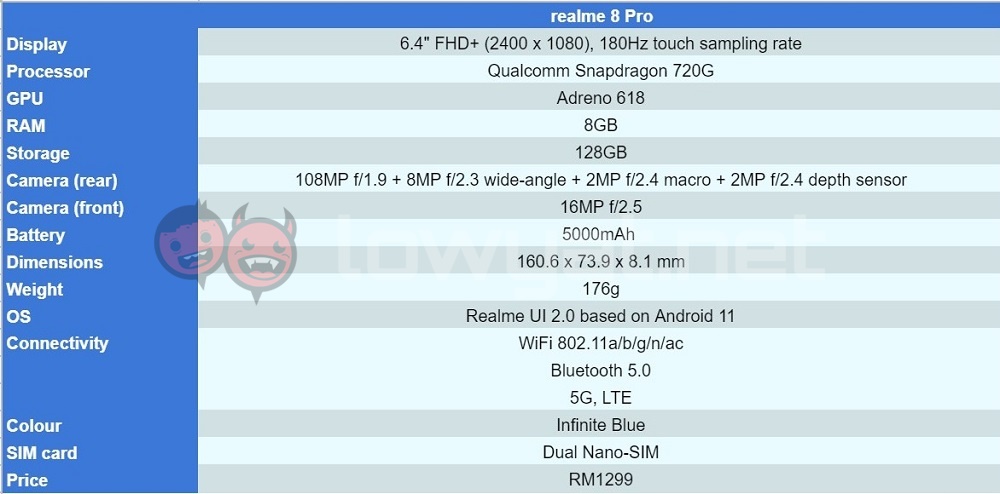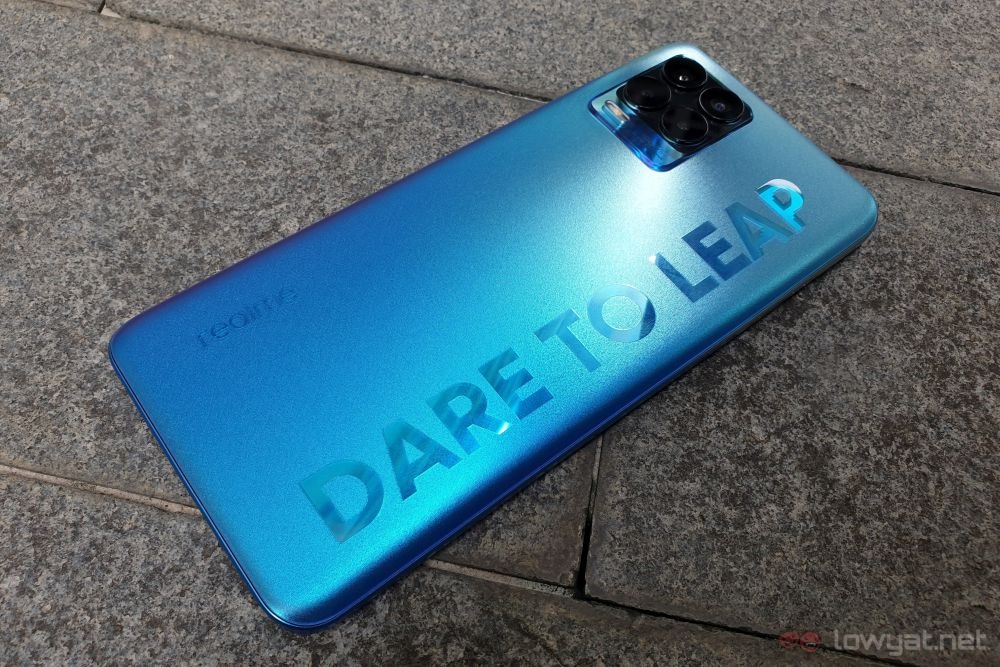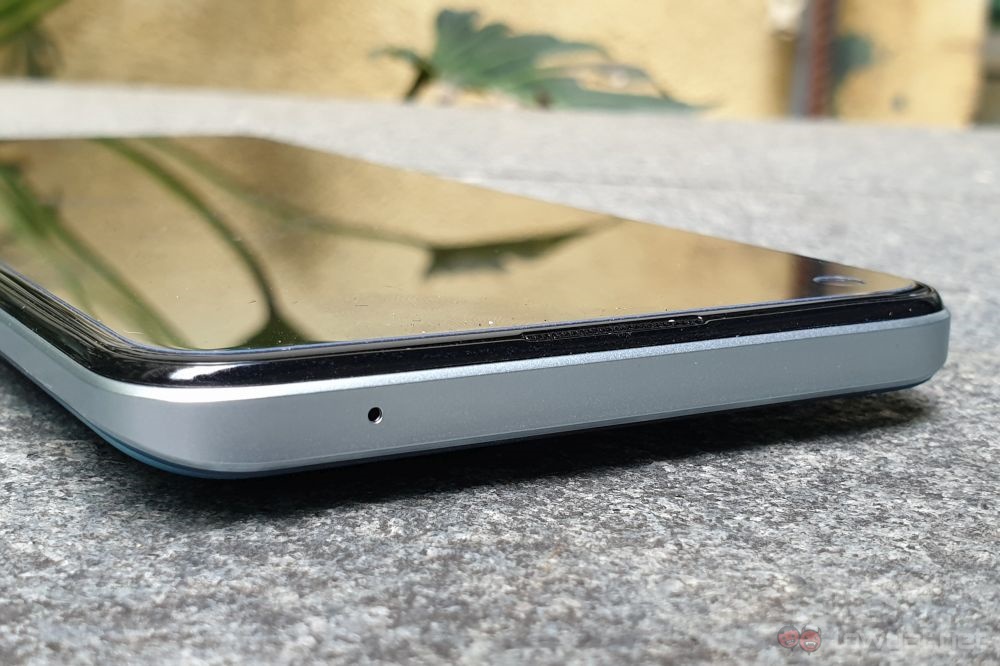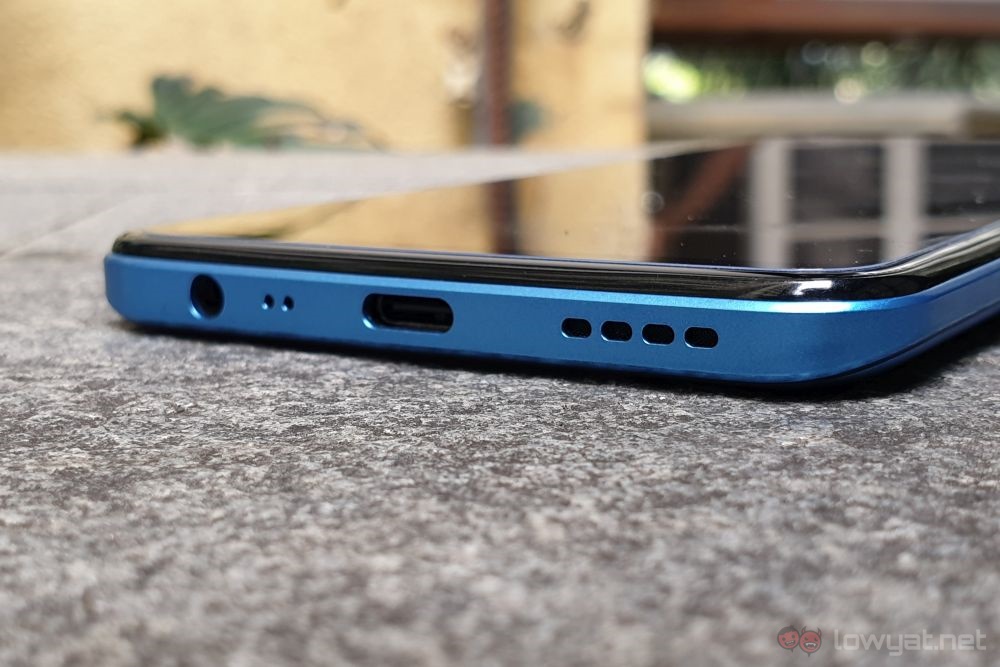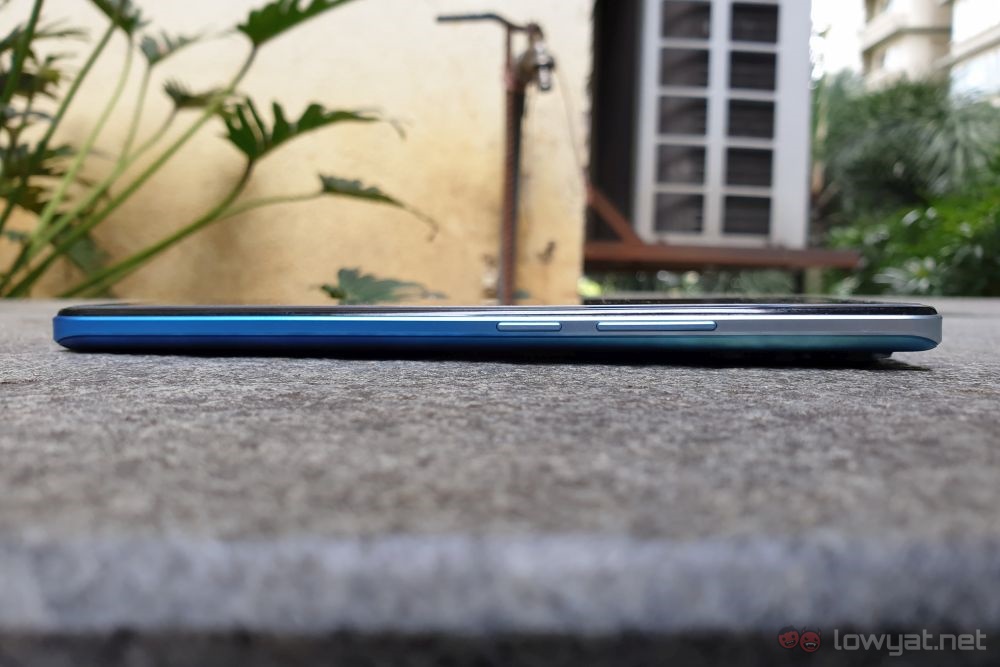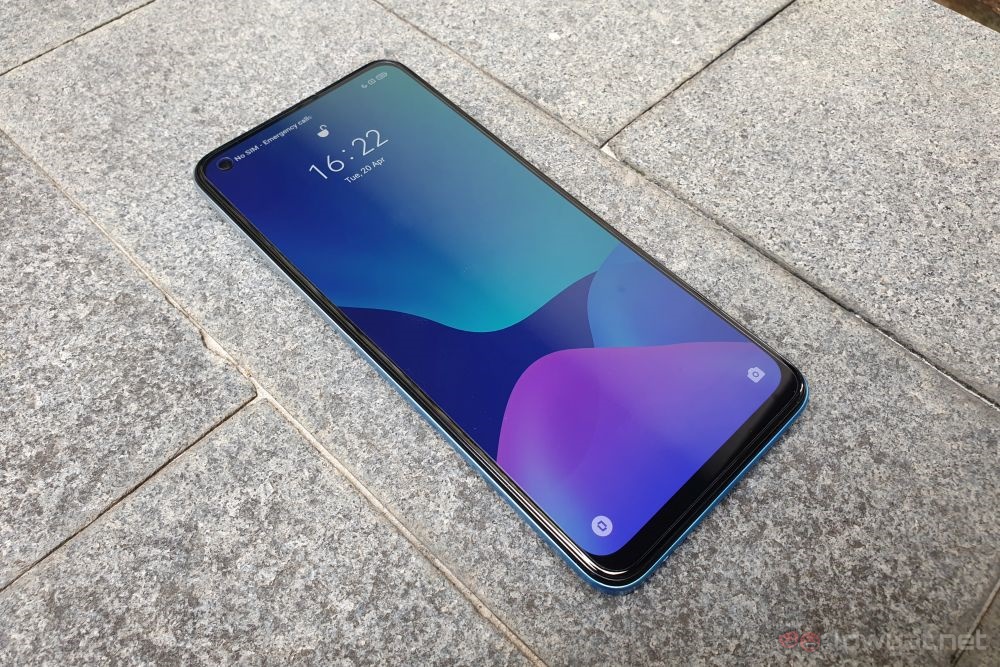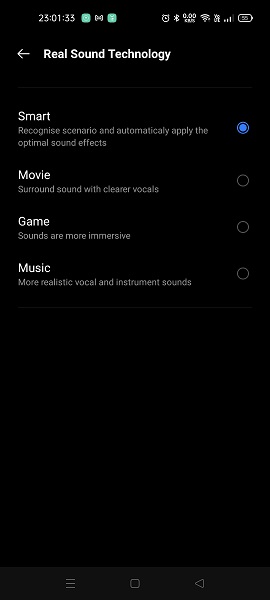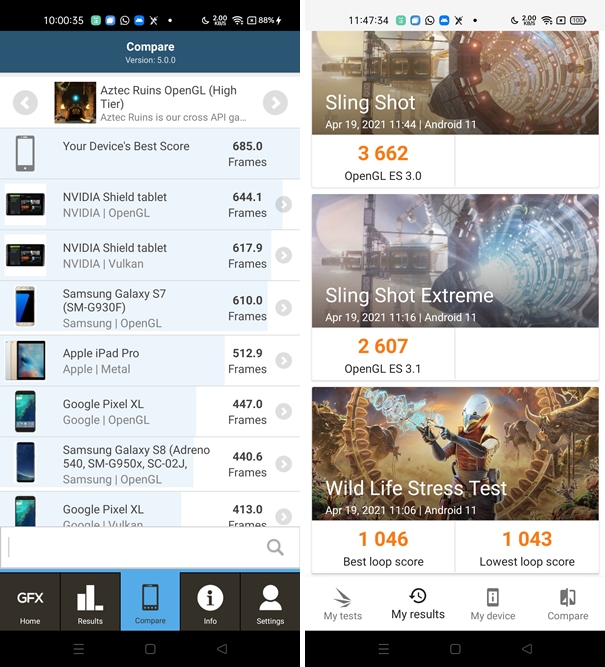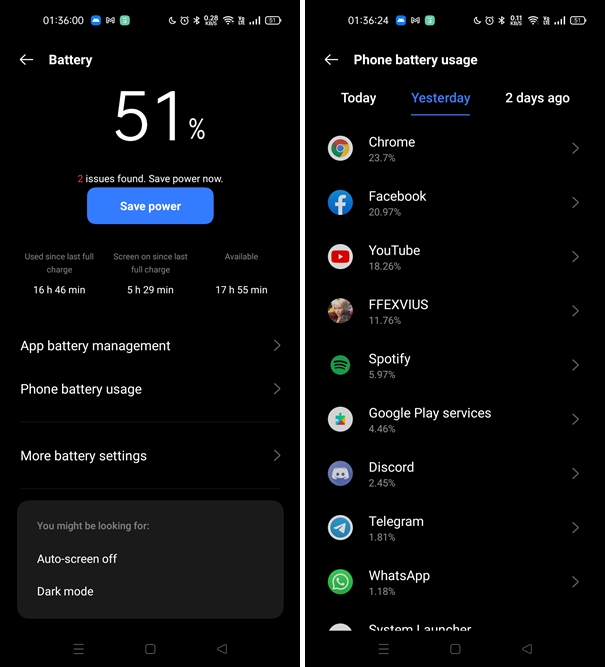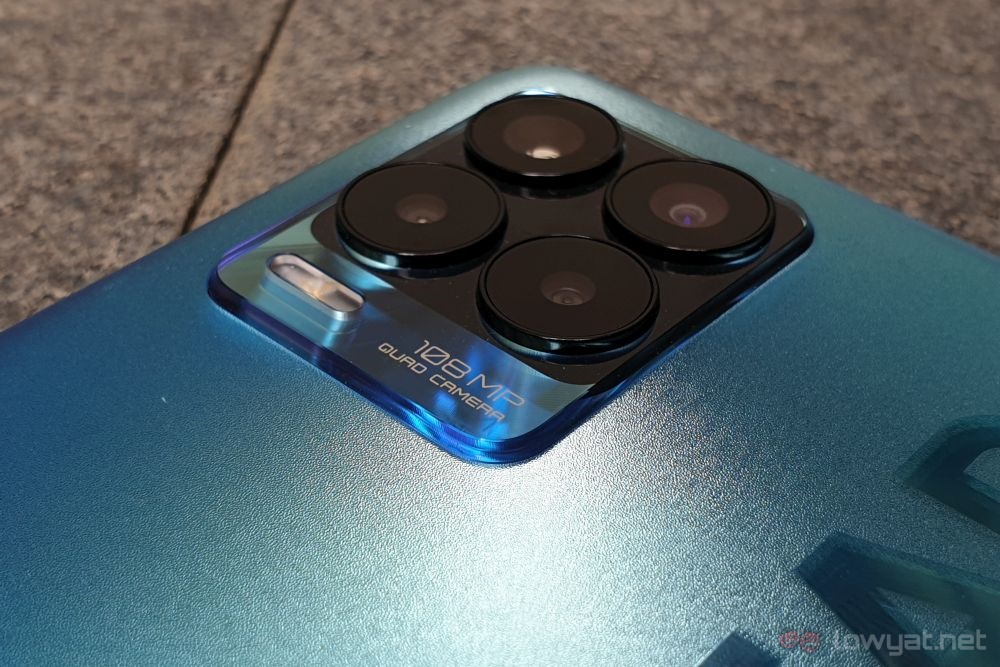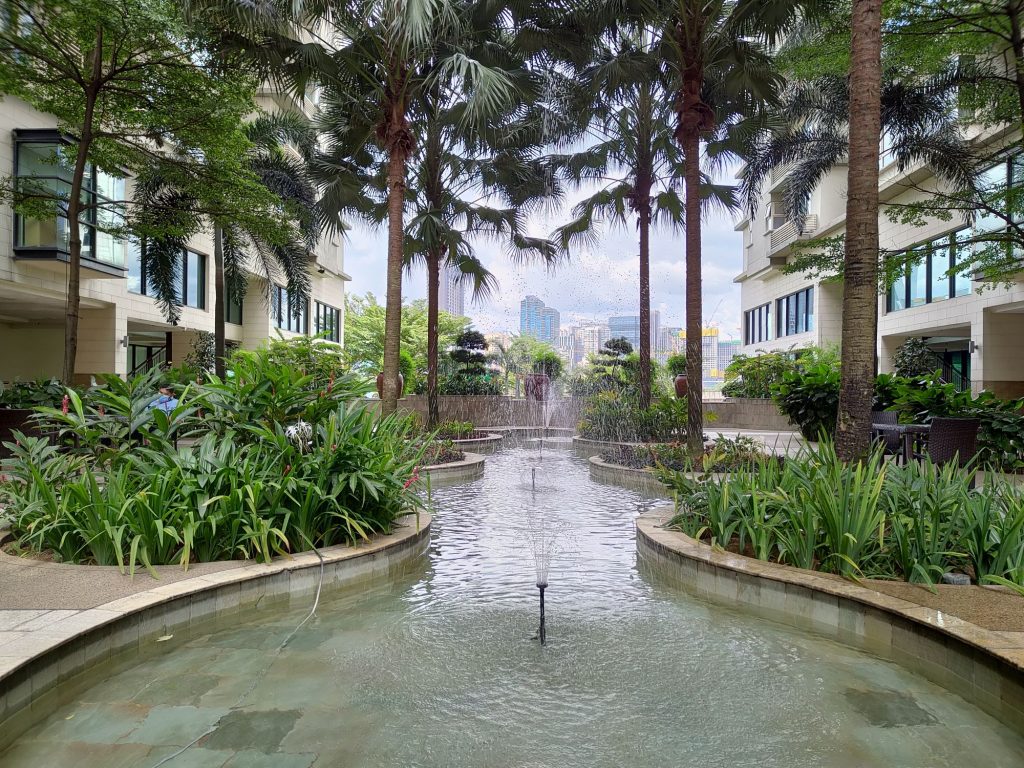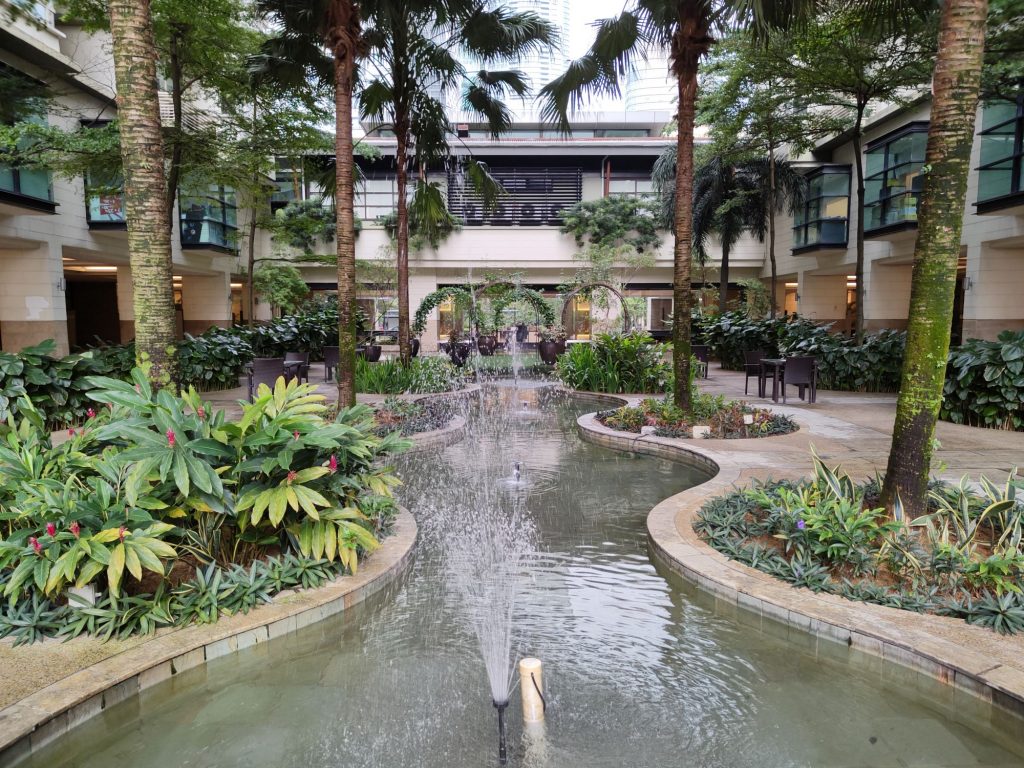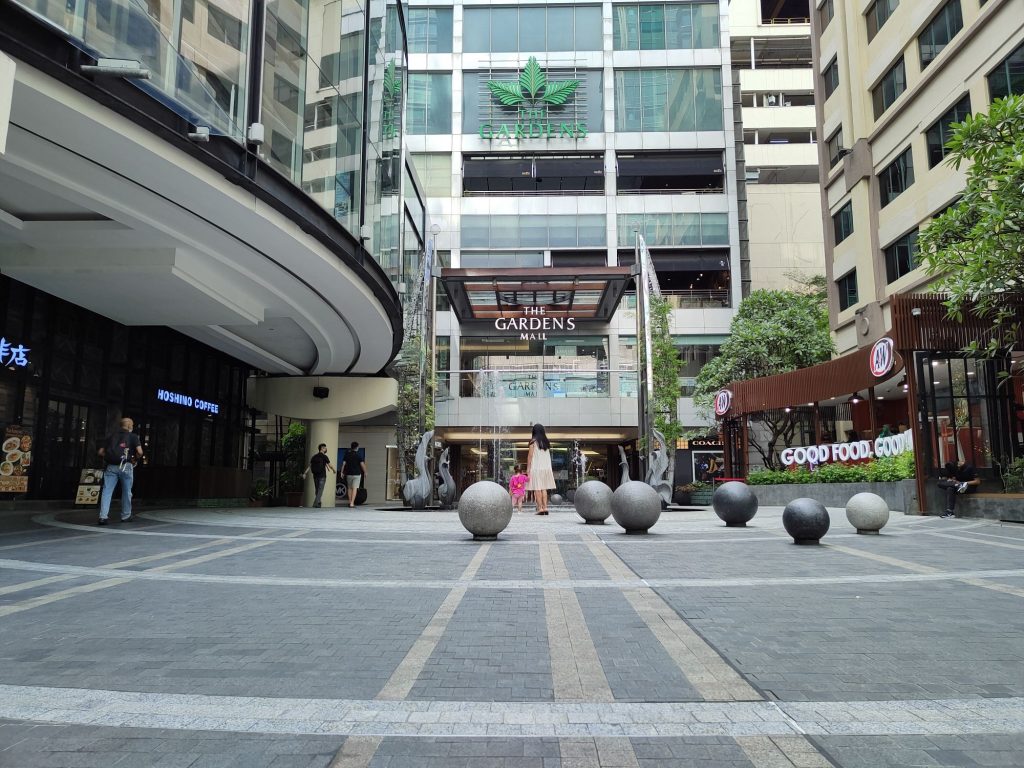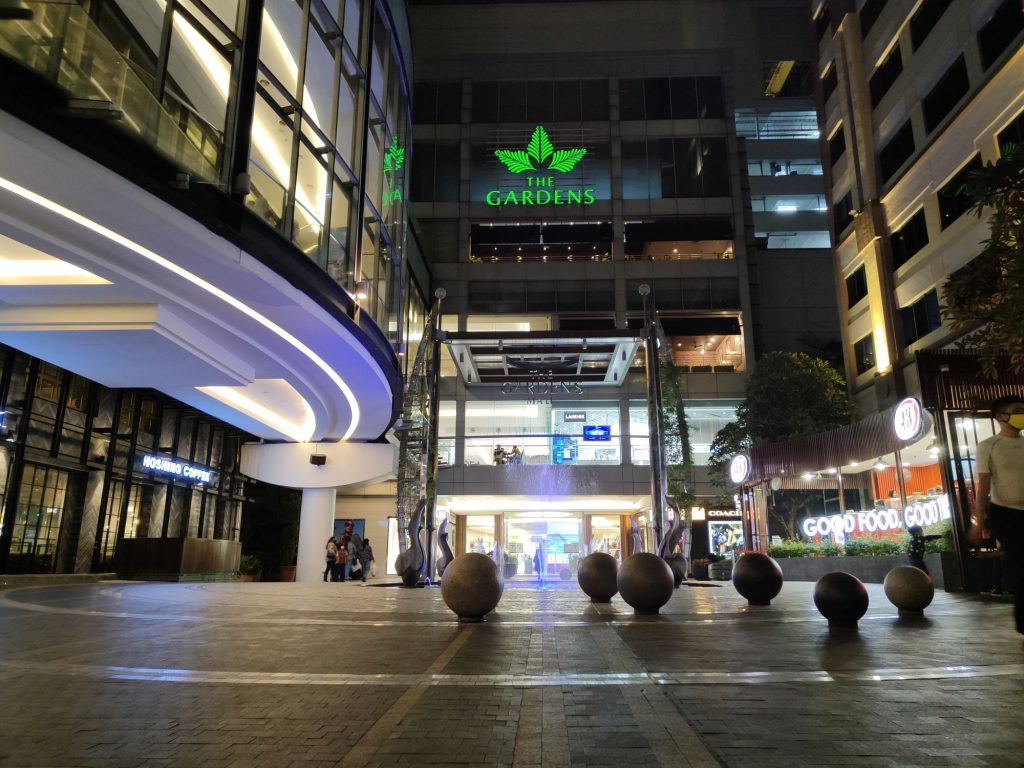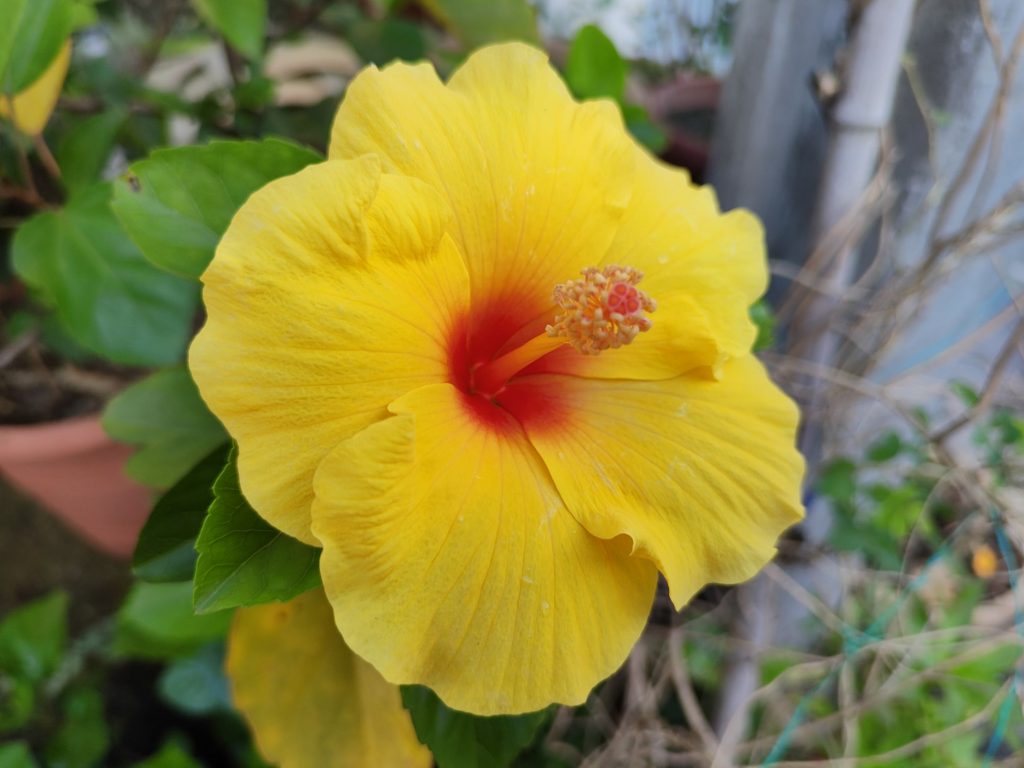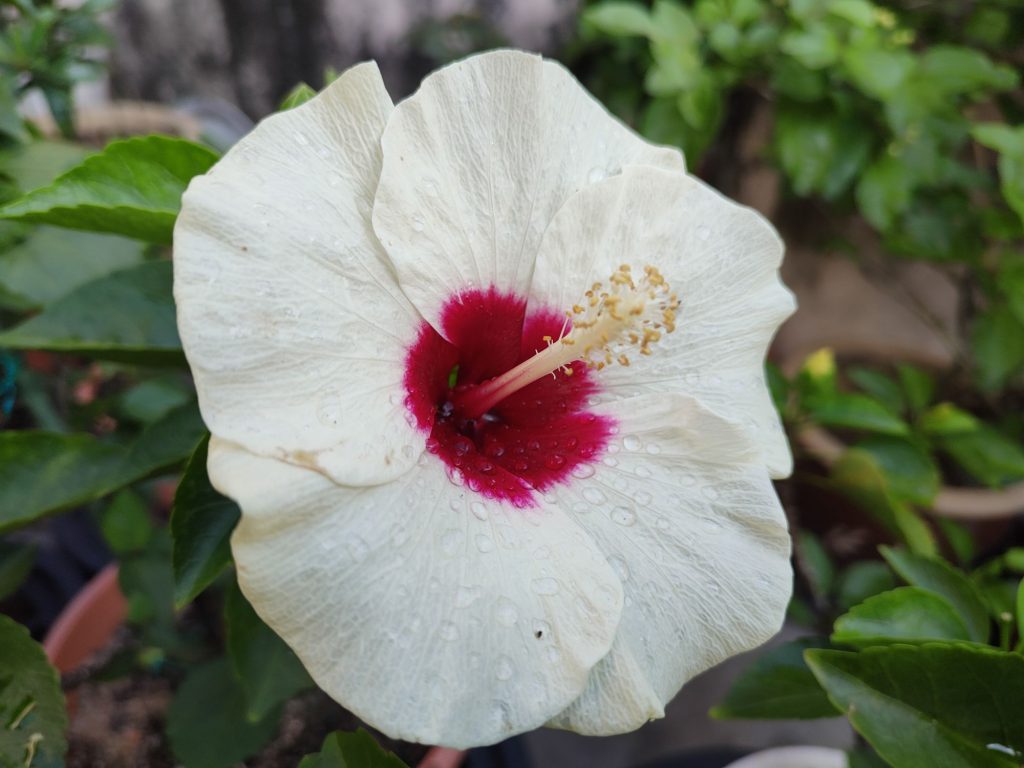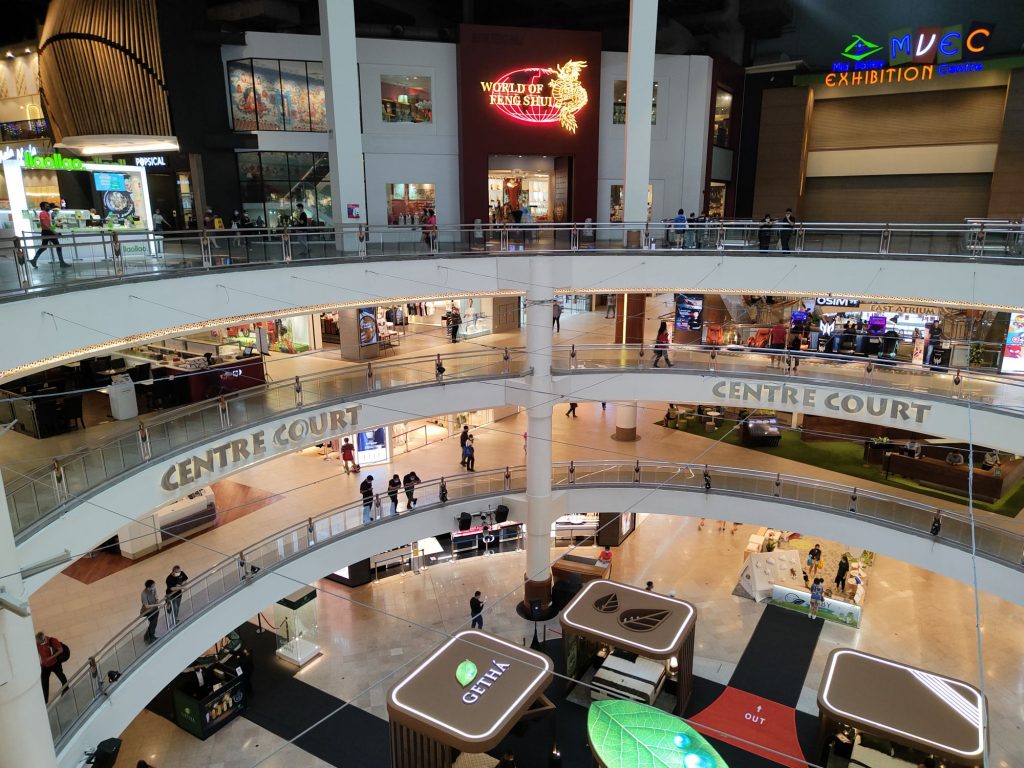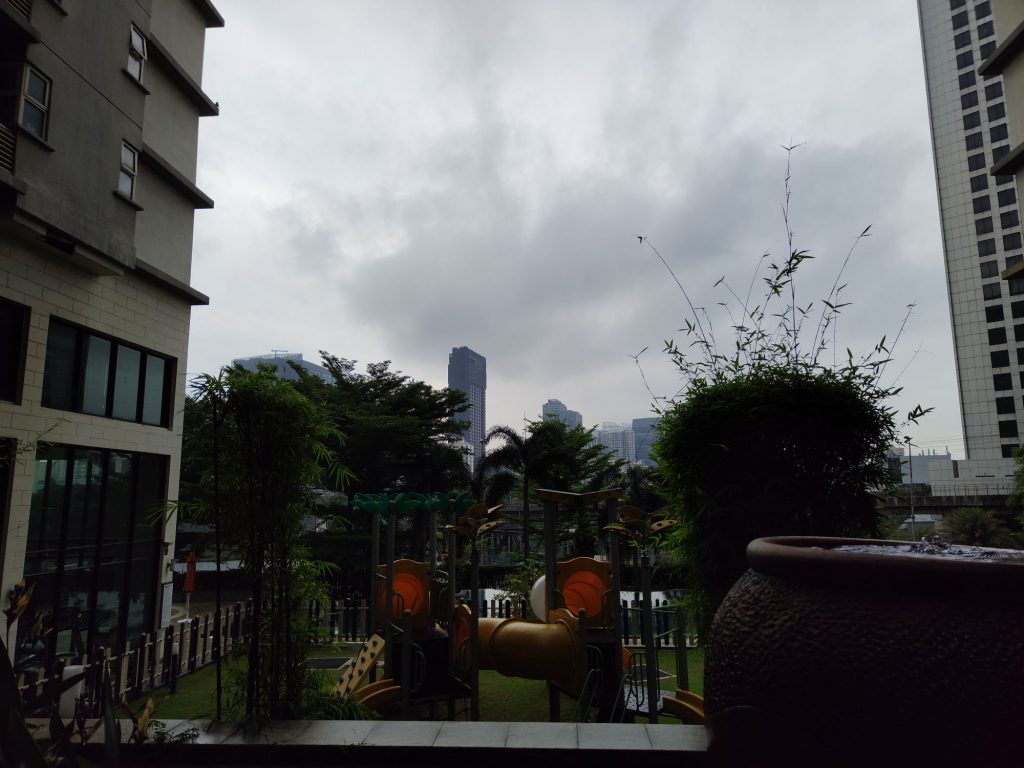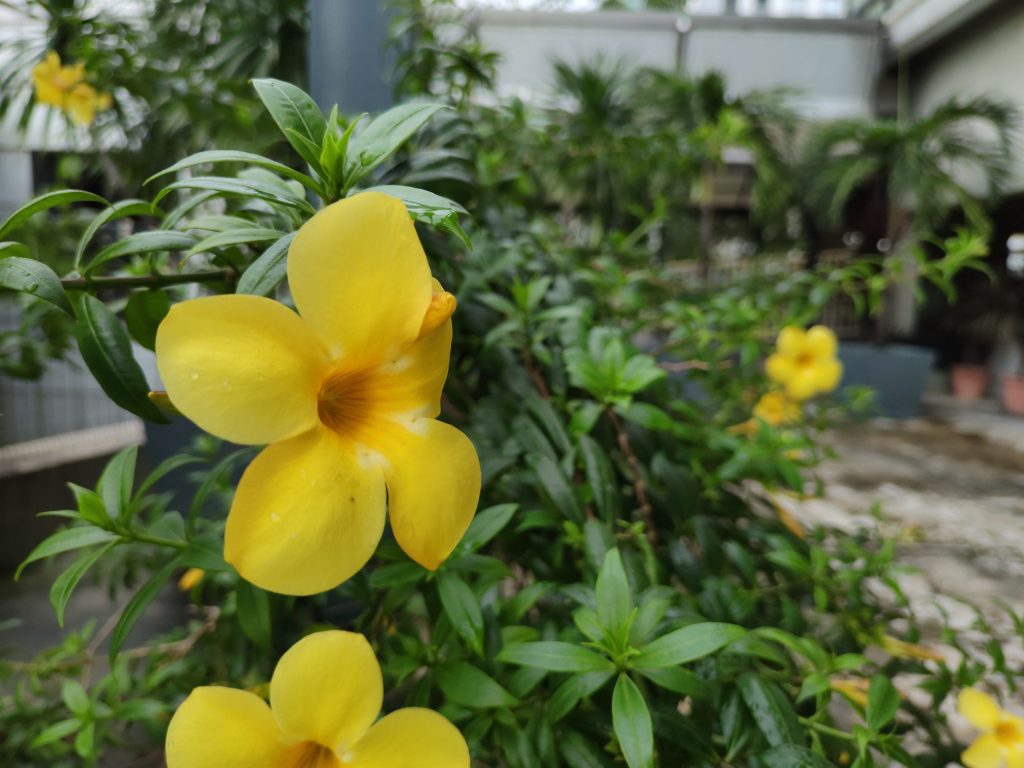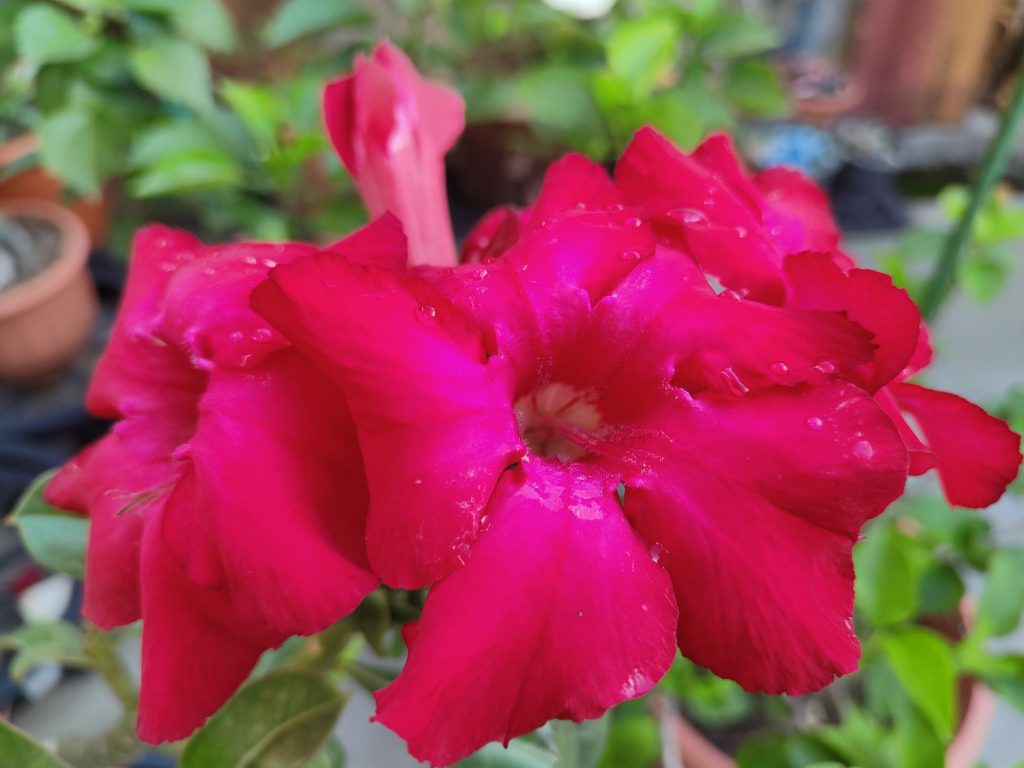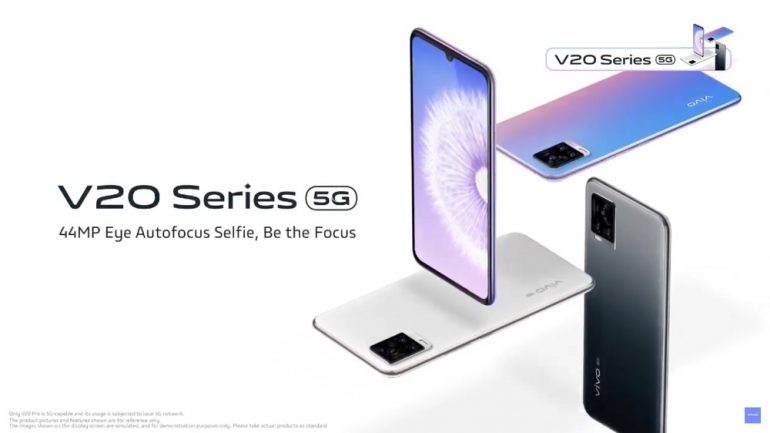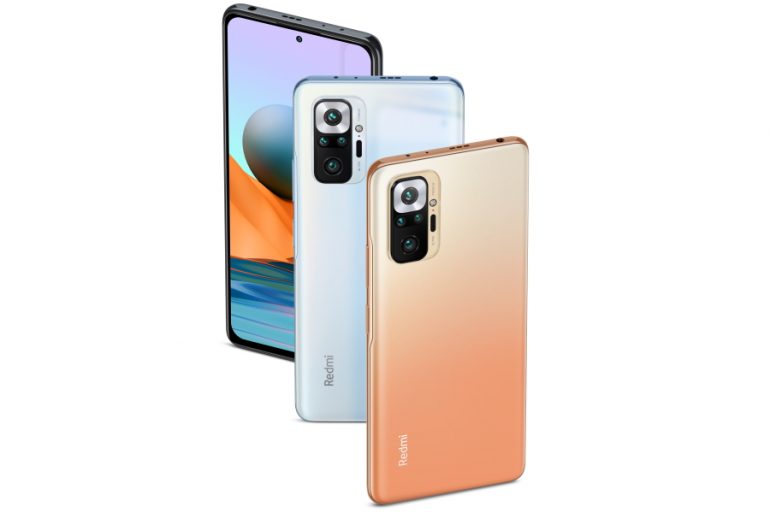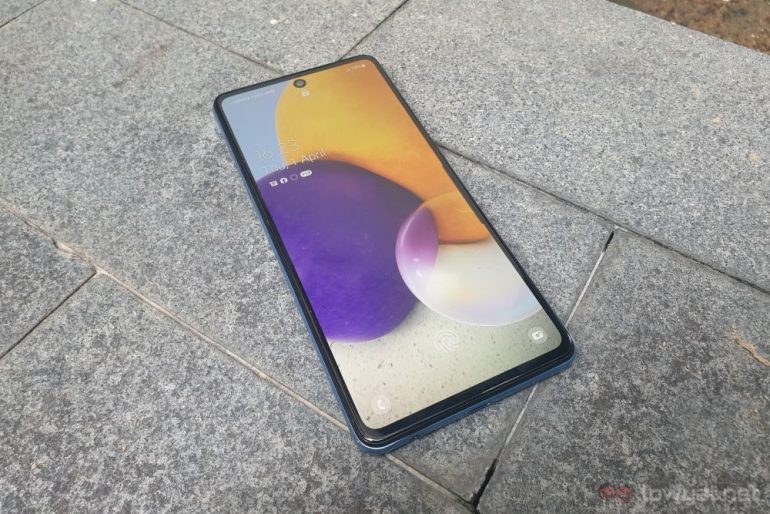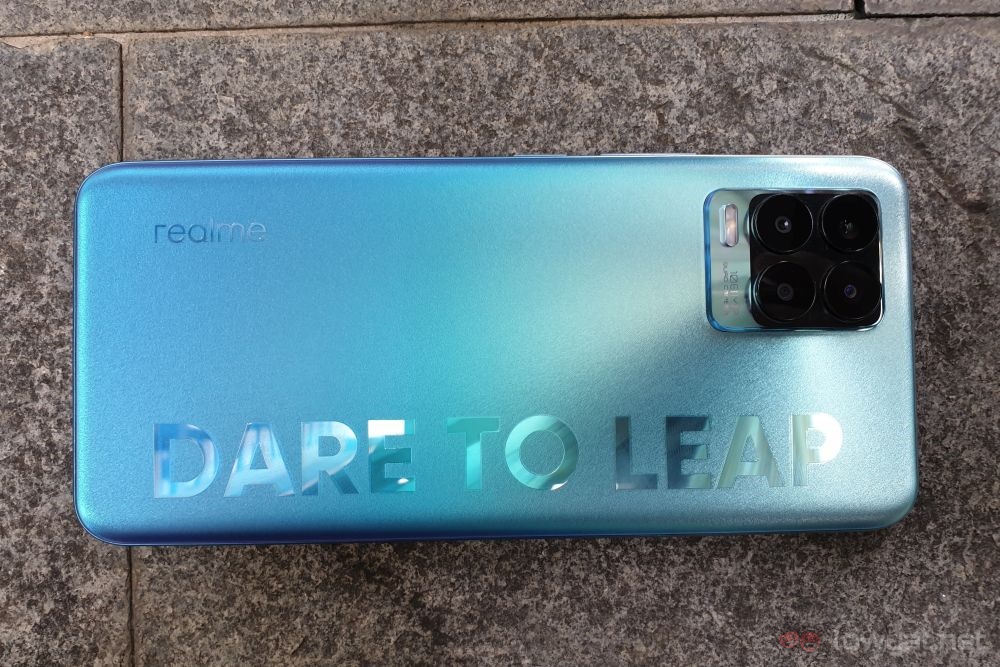For the most part, at least, it has a 108MP main camera as part of its quad-camera setup at the back. That, and a 180Hz touch sampling rate for its screen, making it quite clear what the company wants the phone to be used for.
Specifications
As mentioned, the highlights are the main camera and the touch sampling rate of the display. On a latter note, that sampling rate isn’t matched with its equally impressive refresh rate, although one can argue that touch sampling rate is more important than refresh rate when it comes to mobile gaming.
Design
With the realme 8 Pro, the company is really embracing its tagline of Dare to Leap. That, or it really wants to make it as in-your-face as possible; The three words are featured prominently on the back of the phone, much more so than the company’s own branding. There’s also a slight but noticeable two-tone gradient going on, with the blue going to the bottom end and silver on the top end. But the camera island sees the phone tilting towards the mainstream direction, with basically two levels of elevation. The rear cameras were given the same amount of real estate, even when they don’t need it, and that gives it a sense of uniformity. Depending on your level of trypophobia, this could be completely innocuous or slightly unnerving.
The metal back is mostly textured, except for where the printed words are. Oddly enough, it does make for a slightly better grip, which is a strange thing to feel when I just said the complete opposite in my previous review of the Samsung Galaxy A72. The difference here may simply be down to one phone being metal and the other being plastic, which is bizarre in its own way.
As is pretty common these days, the back tapers off a little at the sides. Which leads to the usual volume rocker and power button on the right. Then there’s the usual USB-C port, speaker grille and 3.5mm audio jack at the bottom. The SIM tray is quite inconspicuous on the left, and the top is pretty much clean.
At the front, things are pretty much par for the course. You have a flat Full HD+ screen with a punch hole cutout on the top left corner. There’s the very obvious earpiece up the top as well, but unfortunately, this doesn’t serve as the second speaker for a stereo sound experience.
User Experience
Before we go any further, let me just get one thing out of the way, and that’s the Android Accessibility feature called Talkback. The first few minutes of starting a new phone up are usually when the phone suffers the most in performance. This is because it’s either downloading or installing a lot of apps in the background. This is especially true if you’re transferring stuff from another phone. The realme 8 Pro is no exception to the process, and the last thing you want is to extend the process by 10 minutes fighting the Talkback feature. On its own, it’s definitely a feature that those with challenged vision can find very helpful indeed. But this should not be turned on, or even enabled by default. This is because when the feature is turned on, most of the otherwise single-tap operations become double and triple taps. Scrolling and swiping also become two- or three-finger gestures.
Also a little annoying is the Real Sound Technology software. You can turn this off while you have headphones connected, but you have to pick one of the options while the phone blasts sound through its speakers. This can lead to things sounding very unnatural, depending on what you have playing. and it doesn’t help that its Bluetooth volume levels are quite a bit lower than usual. The in-display fingerprint sensor could use some work though, as it seems to mostly only unlock after the third attempt. Fortunately, facial recognition works pretty much flawlessly, even if it doesn’t take too kindly to the common face mask these days.
Beyond that, the realme 8 Pro performs about as well as you’d expect for a phone of this price. As my daily driver, it’s fairly responsive, and it sits quite nicely in hand while you use it. The benchmark figures aren’t groundbreaking, but its actual gaming performance is fine, at least with titles such as Final Fantasy Brave Exvius. One very impressive aspect of its performance is its battery life. With average use, you can probably end the day with slightly over 50% battery charge. Even heavy use will still see the battery lasting you the full day. If you’re a light user who isn’t much into scrolling social media, you could probably stretch a single charge to two days.
As for our usual video loop test, the realme 8 Pro managed a continuous run of 23 hours and 12 minutes. Equally impressive is the charging time, which takes it from an empty battery to a full one in under 50 minutes.
Camera
As mentioned earlier, headlining the camera setup at the back in a 108MP main shooter. This is accompanied by an 8MP wide-angle, 2MP macro and 2MP monochrome cameras. Overall, the cameras on the realme 8 Pro do pretty well, under good lighting conditions. Colours are accurate, and it’s really good to see the brand keeping its phone cameras in this direction. Detail retention is also very good. Surprisingly so, in fact.
Though under low light conditions, things are pretty much as you’d expect. It’s generally something that most phones struggle with, and the realme 8 Pro is no exception. And overall it’s much the same story with the highlight 108MP camera too. Speaking of which, we have a comparison of a few phones with 108MP cameras coming up soon, so stay tuned for that.
Sample Images
108MP Samples
Competition
With the slew of recent phones sporting a 108MP main shooter, there are many phones that can compare to it. Ditto the Qualcomm Snapdragon 720 chipset.
Vivo V20
First on the list is the Vivo V20. It sports the same Snapdragon 720G chipset, 8GB of RAM and 128GB of storage space, so there are a lot of similarities between the two. Though the battery is slightly smaller, with a 4000mAh capacity. It does come with a very slightly larger screen, measuring in at 6.44 inches, but it does feature the 180Hz touch sampling rate. As for the cameras, this has three at the back instead of four. And it’s 64MP + 8MP + 2MP combo at that, lacking the monochrome sensor on the realme 8 Pro. And it all comes at a price of RM1499.
Xiaomi Redmi Note 10 Pro
The Xiaomi Redme Note 10 Pro is another similar device to the realme 8 Pro. The screen is a little larger, at 6.67 inches, and it has a refresh rate of 120Hz, though it doesn’t boast an extraordinary touch sampling rate. It runs a Snapdragon 732G chipset on the inside, and a larger 5020mAh battery. For its cameras, it sports a 108MP + 8MP + 5MP + 2MP camera setup. And while it has three RAM and Storage configurations, the most similar one to the realme 8 Pro is the priciest one, with 8GB of RAM and 128GB of storage, and a price of RM1099.
Samsung Galaxy A72
One of the most recently released phones in the list, the Samsung Galaxy A72 also sports the same Snapdragon 720G chipset. It does have a larger 6.7-inch screen, double the storage space at 256GB, and a slightly large 5000mAh battery. On cameras, is has a 64MP + 8MP + 12MP + 5MP camera setup. And rounding up the package is an RM1899 price tag.
Conclusion
As another entry into the rapidly expanding realme catalogue of phones, the realme 8 Pro does as you’d expect. While the 108MP main camera can be considered a worthy upgrade, most of everything else is the usual incremental climb over the previous generation. That being said, it’s not a bad phone. You may find the startup process infuriating (like I was) if you’re not careful, and your mileage may vary about the very in-your-face advertising at the back. But beyond that, the phone stands well on its own in everyday use, has a long-lasting battery life, and a very fast charging rate. If you’ve just recently bought a midrange device, you probably won’t be making the leap, no matter if you dare to or not. But if you’re looking to replace an ageing device, then you can consider the realme 8 Pro. It’s worth mentioning that it has a price of RM1299, so it has that going for it.
